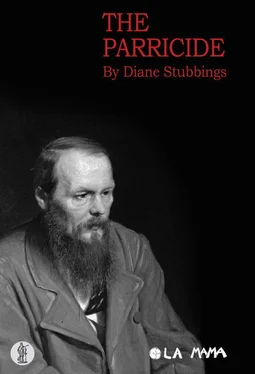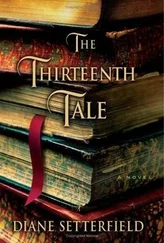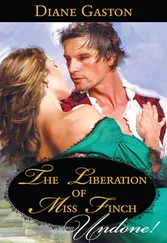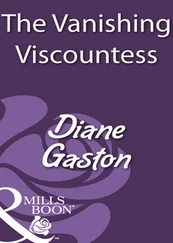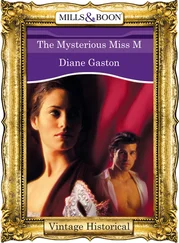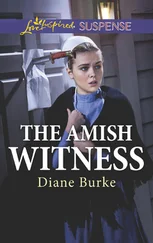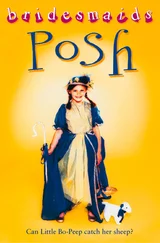A candle-lit room. A roulette wheel spinning. FEDYA stands watching the wheel spin and stop, spin and stop. He is barely aware of what is happening with the wheel—he’s absorbed by the figures in his imagination— MITYA and KATYA.
MITYA: I didn’t think you’d come.
Are things so desperate?
A beat.
MITYA: I can’t help you if you won’t speak.
KATYA: My father is dying.
MITYA: That much I know.
KATYA: He has debts. If he dies before they are paid…
MITYA: He dies shamed.
KATYA: It’s not himself he’s worried for. It’s my mother, his children.
MITYA: It’s a lot of money.
KATYA: If you hadn’t said you’d loan it to him…
MITYA: The loan would not be to your father.
A beat.
This is a matter of business.
A loan at a judicious rate.
Some gift would need to be given in return…
VOICE: [ off ] Place your money.
FEDYA ’s attention is brought back to the roulette wheel. KATYA and MITYA recede into the darkness.
FEDYA watches the wheel spin. He places his money.
MITYA transitions back into KOLYA.
[KOLYA]: It’s its own myth, that morning in Semyonovsky square. That morning he was slated to die, paraded on the scaffold with the other criminals. A story that cascaded, man to man to man, through the cells where I was still being held, and each of us awaiting a similar fate…
We’d met first at Petrashevsky’s meetings, his circle of like-minded thinkers—and Fedya like an apparition on its edges—absorbing every word—but biding his time—holding close his opinions…
And when he did at last speak… I can still hear him. The way his voice blazed out from him…
All of us there—testing ideas—moving towards a singular vision of the future… All of us condemned for it.
Just as the rifles were aiming towards the prisoners, the Tsar intervened.
Fedya was sent to Siberia.
A different category of death…
SCENE FIFTEEN
FEDYA ’s flat. KOLYA is happily ensconced when FEDYA enters. FEDYA goes about the room, closing up notebooks, hiding papers.
FEDYA: I’ve told the landlady not to let you in.
KOLYA: She’s easily charmed.
FEDYA: The roubles you throw at her don’t hurt.
A beat.
KOLYA: No novel?
I send you the answer to your prayers and you tell her there’s no novel.
FEDYA: Tell who?
KOLYA: Anna.
Young. Pretty. Brown hair… Ahh. He remembers.
This novel will be written, Fedya, if I have to write it for you myself.
Unless Stellovsky is satisfied with whatever you throw his way, I get no new work from you. Not a word. He’ll have everything. For the next eight years. You’ll get not one kopek. And I’ll be publishing one blank page after another. How then am I to help you?
A long beat.
FEDYA: Send her if you must.
KOLYA: I’ll tell her to come tomorrow.
FEDYA: Just keep away from her. Until the book is finished. Pursue her then.
A beat.
How’s your wife?
KOLYA: Happily languishing on her father’s estate.
It’s a matter of understanding the boundaries, Fedya. What can and cannot be crossed.
FEDYA: Did you send my letter to the committee?
KOLYA: You’d put your own life on the line to support some ragtag students?
The Tsar liberalised the universities. Called back all those who’d been banished under his father. Made provision so that the poor could attend—
FEDYA: All rescinded—
KOLYA: Because they’ve decided they’d rather turn themselves into powder kegs and blow Russia apart at the first opportunity.
FEDYA: They need a keener hand to guide them. That’s all. Someone who’ll steer them away from all this talk of destruction—
KOLYA: You’re thinking you?
FEDYA: Some sway in the order of things. A voice—
KOLYA: We’re to let them loose in government now? Keep extending political rights to those who’ve no idea what to do with them—?
FEDYA: There is in your thinking a defect that I both hate and despise.
KOLYA: Until you need my money.
We were on the same side of this once.
FEDYA: Were we?
KOLYA: You know we were.
Determined to break the power of the censors, no matter what. Pushing for the freedom of the serfs—
FEDYA: This is the history you cling to—?
KOLYA: Proof that change can come—will come—but in its time—
FEDYA: Because I don’t remember it, Kolya. You standing beside me on the scaffold while I waited my turn/ to die—
KOLYA: What chance did I have? Chained up/ in their stinking hole—
FEDYA: If I knew the students who planted the bombs, I’d not name them.
No matter the circumstances.
I would not name them.
A long beat.
KOLYA: Write your book, Fedya. Let that be the hand that guides Russia forward.
FEDYA busies himself with his papers.
KOLYA exits.
A beat.
FEDYA takes his coat. Exits to the street. Tears a flyer from the doorpost as he passes.
The sound of a roulette wheel.
The sound of the wheel morphs into the steady rhythm of a printing press. KARAKOZOV in a dark room working the presses. There are others there with him, but he is the only one we see.
STUDENT/S [ off ] We will be committed.
We will have no interests of our own.
No relations.
No attachments.
No possessions.
No name.
Everything in us immersed in this one singular passion…
FEDYA and ANNA working. As ANNA takes dictation, FEDYA juggles all his scraps of papers, getting them in the right order. He is energised—barely stops for breath. ANNA struggles to keep up.
FEDYA: [ dictating ] …and, by some strange perversity, I made a point of putting all my money on it, taking mad risks, a terrible craving to dare possessing me. The sensation that gripped my soul, not killing my desire, no, but feeding it, stirring it, stronger and stronger, until my spirit was entirely spent, until there was nothing left of the man I knew myself to be, of the man—
ANNA: Slower!
FEDYA: Slower?
ANNA: If you have any pity.
My hand’s beginning to ache. After a whole morning at such a pace.
FEDYA: How much have we done?
ANNA: Twenty pages at least.
FEDYA: This will work.
This will work.
I can see light—I think it’s light—at the end of the tunnel.
ANNA subtly tries to work the ache from her hand.
Here. Give me your hand.
ANNA tentatively holds out her hand. He begins to massage it.
ANNA: [ quickly drawing her hand away ] That’s not necessary.
FEDYA: [ taking her hand again ] On a good day, when the ideas take hold of me, wrestle me into submission—good days that have become rarer and rarer—I need to work my own hand like this.
A beat.
It was taught to me by one of the prisoners in the camp.
He was a blacksmith. In the Engineers. The Army. Before he was jailed. He killed his father. In a jealous rage, but that’s not… His hands would cramp, particularly in the cold weather. And he would sit hour after hour kneading the rigidity from them. I used to marvel at the strength of them. His hands. Until I understood what he’d done with them.
It’s a good story for a novel, don’t you think? A man who kills his father?
Читать дальше
